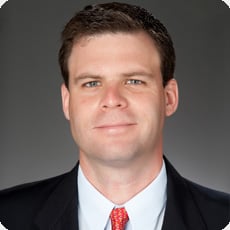Helmets Don't Prevent Concussions
Nearly 6,000 football helmets voluntarily recalled
News of nearly 6,000 football helmets being voluntarily recalled is definitely worrisome to parents of young athletes. But Ricardo Guirola, M.D., warns that even under the best of conditions, helmets don’t protect your kids from concussions.
 Dr. Guirola is one of the select group of Cook Children’s doctors who have undergone and completed rigorous training to earn ImPACT credentials. Used by the world’s leading sports authorities, ImPACT is the most widely recognized science-based concussion and evaluation program available today. Cook Children’s has 26 credentialed doctors in nine locations to evaluate a child’s progress on returning to the playing field.
Dr. Guirola is one of the select group of Cook Children’s doctors who have undergone and completed rigorous training to earn ImPACT credentials. Used by the world’s leading sports authorities, ImPACT is the most widely recognized science-based concussion and evaluation program available today. Cook Children’s has 26 credentialed doctors in nine locations to evaluate a child’s progress on returning to the playing field.
“There’s no evidence that helmets alter concussion risk for young football players,” said Ricardo Guirola, M.D., M.Ed., who specializes in sports medicine. “Helmets do play a protective role in decreasing the risk of fractures, intracranial injuries and oral injuries.”
The recalled helmets were manufactured by Xenith and the U.S. Consumer Product Safety Commission reports that the shells of the helmets can crack, posing a risk of head injuries. Xenith has released a statement saying they have corrected the issue on all helmets manufactured since March 2016. The serial number is printed on a white sticker inside the top of the helmet. For a list of the serial numbers included, visit www.xenith.com/recall.
Along with helmets, Dr. Guirola says young athletes shouldn’t depend on helmet attachments with claims of protecting from head injuries such as bumpers, pads and sensors.
“At this time, there have been no well-controlled studies show that helmets or third-party attachments prevent or reduce the severity of concussions,” Dr. Guirola said.
Awareness regarding the potential negative effects of concussions has increased dramatically in recent years, said Carla Hearl Morton, Ph.D., a pediatric neuropsychologist and also a member of the ImPACT program.
“As we learn more about concussions, guidelines for how best to treat athletes continue to evolve,” Morton said. “Most athletic trainers and coaches have completed several hours of education regarding how to manage a concussion immediately after it occurs. Regardless of any recommendations they may provide, it is a good idea to notify your child’s primary care physician so that his or her doctor can document the concussion in your child’s medical record, provide guidance in the acute phase of recovery, and better coordinate care if symptoms persist.”
To learn more about Cook Children’s ImPACT program, click here.
About the source
 Ricardo Guirola, M.D., specializes in Rheumatology and Sports Medicine. Dr. Guirola takes care of athletes and being part of their active and directed therapy. As part of his education, Dr. Guirola obtained a Master's of Education. He uses those skills to teach families, students, residents, nurses and other physicians. Outside of his medical practice, Dr. Guirola spends times with family, runs and plays soccer and tennis.
Ricardo Guirola, M.D., specializes in Rheumatology and Sports Medicine. Dr. Guirola takes care of athletes and being part of their active and directed therapy. As part of his education, Dr. Guirola obtained a Master's of Education. He uses those skills to teach families, students, residents, nurses and other physicians. Outside of his medical practice, Dr. Guirola spends times with family, runs and plays soccer and tennis.
